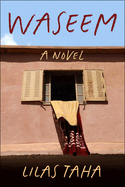
Waseem perceptively centers a Palestinian community's resilience in a Lebanese refugee camp. Author Lilas Taha infuses surprisingly poignant charm, reclaiming joy even if "it made little sense in this miserable world."
"I shall tell you lies," the titular Waseem opens. He's the firstborn son who should have been named Saleem, meaning " 'physically healthy'... [but] the kindhearted neighborhood midwife wanted to spare [him] ridicule." Born with "a number of handicaps"--he can't walk, he limits his speech to grunts--he expands his world by reading "anything that came to [him]." He's "crippled, but not helpless," a keen observer and holder of secrets, which he learns to wield as a "means to force someone's hand," usually to counter cruelty. Throughout Waseem's life, "noble Ameena, the girl who brought [him] gifts in her panties"--mostly books!--is his enabler, savior, and heart-wrenchingly elusive love. Her sheer force of will catapults him into a UN Relief and Works Agency medical program in the Netherlands, which allows him to move without a walker. His arrival back in Lebanon lands him amid relentless chaos, and life goes on: his widowed mother's unquenchable longing for her childhood Yaffa oranges, his siblings' sagas of quotidian endurance, his neighbors' tribulations of conflict and abuses.
Taha, a Palestinian Syrian American by way of Kuwait, clearly understands displacement and an impossible yearning for homelands long gone. Waseem is her cipher who, in turn, shares the "lies" his family and community tell to stay alive. Briefly, Taha presents Ameena with agency, to reveal a life beyond camp and, when Waseem is silent, why she must return to share the last laugh. --Terry Hong

